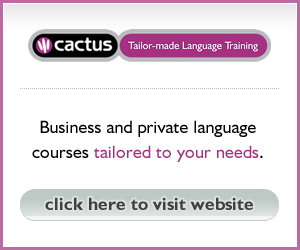Teacher Development : What Is It and Why Do It?
Tuesday, 10th March 2009
When you have finished your initial training course you need a year to get some experience in the classroom under your belt and get a feel for a full year’s cycle of language teaching and learning.
The first year in a school will see you settling in and getting used to it all. By the end of the first year, you will know the cycle and know what to expect. Things won’t be such a novelty, and will seem a lot more familiar. Your first year’s experience teaches you what real teaching is like: you will no longer need to spend such an exorbitant time planning lessons, things ease up a little as you get to know your students and your confidence takes hold.
During your second year, things consolidate. You are able to see how you can improve on the way you did things in the first year. You also start to see how students progress and how the syllabus makes sense. You also have a stack of lesson plans you can use with your students so planning is no longer so frenetic. You know your fellow teachers better and can ask for help and teaching ideas more easily. You also know your location better so the strain of being a newcomer eases up and you can concentrate better on your teaching. In many ways, the second year is far better than year one.
In year three or thereabouts, you start to think about your own progress and development. This thinking can take many forms: the desire for improvement in how you teach certain aspects of the syllabus, such as vocabulary or grammar or writing skills. Another is overall improvement of every aspect of your teaching : a Diploma level course is good for this.
Another direction is the need to specialise, perhaps in a particular niche area: young learners, business, technology: there are courses both face to face and online for all these and more. It is always a good idea to pick your speciality area early on so you can build up a stack of information about it which will help you later to be seen as an expert, and therefore in much more demand than just another general English teacher.
More about teacher development courses
Tags: english, learning, tefl, language, tesol
Posted by Laura Harrison under Types of Courses,
Permalink
